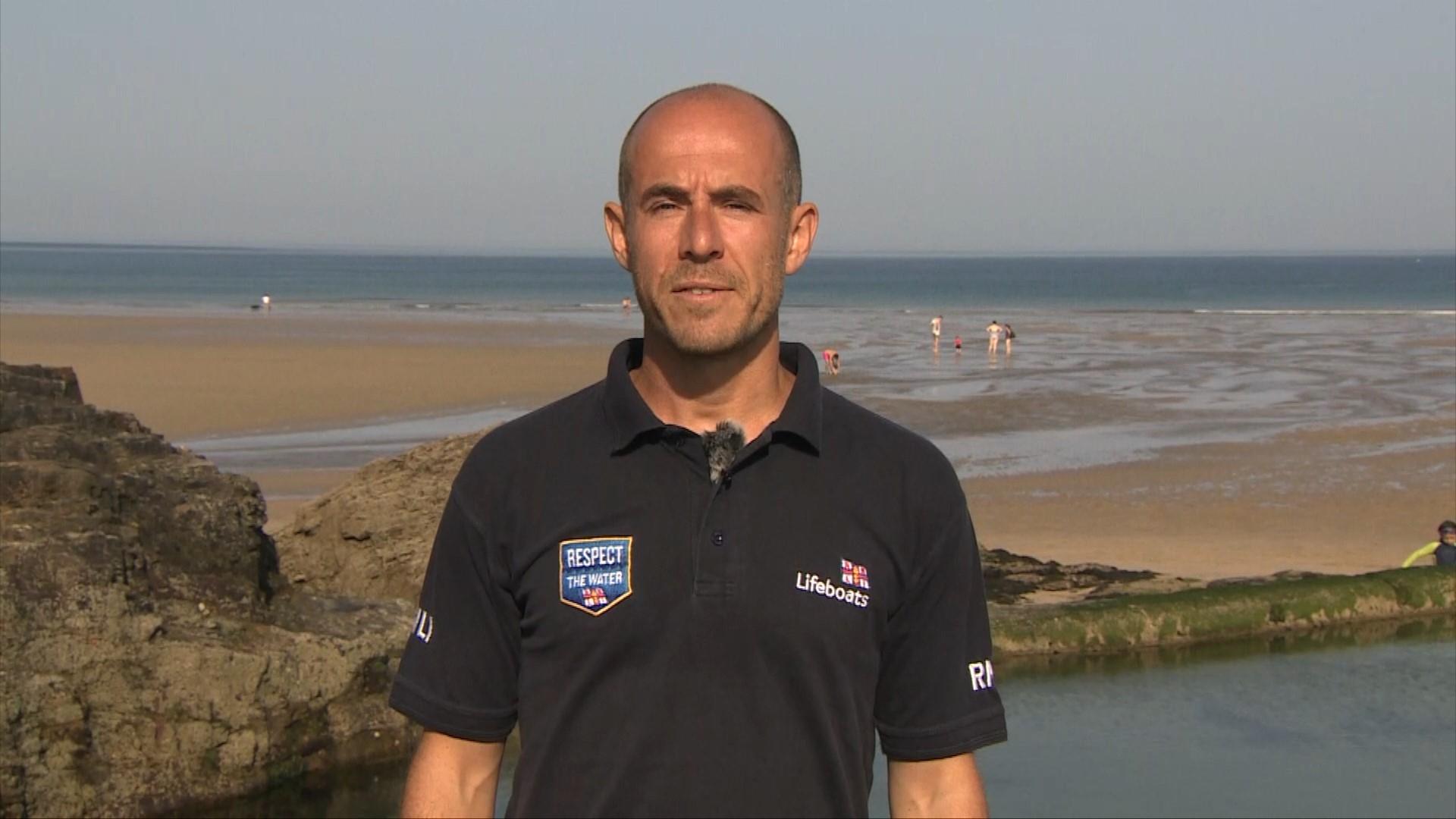Water deaths: Public warned of 'hidden dangers' in lakes and rivers
- Published
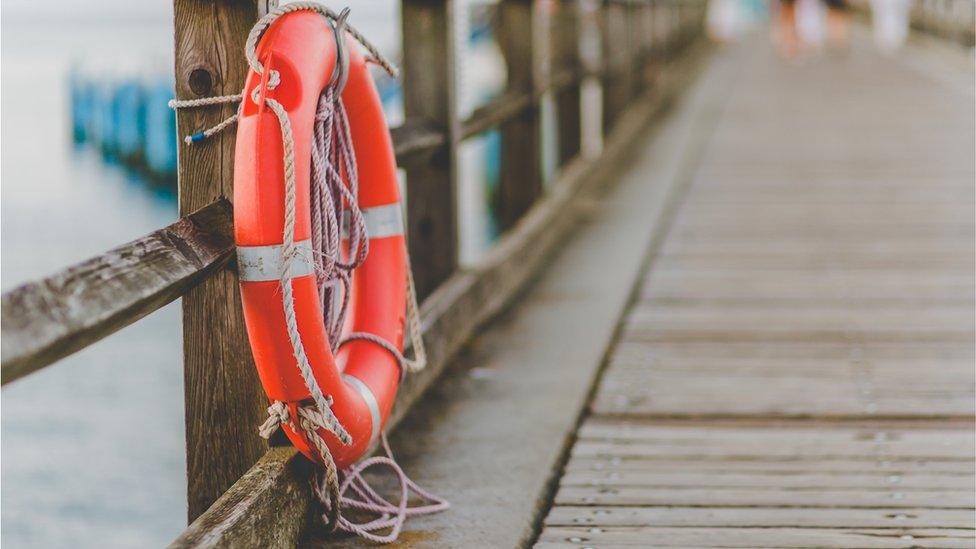
The RNLI has warned of the potential dangers of swimming in lakes and rivers after six people died entering water on the island of Ireland during the past week.
They included two teenagers who died following incidents in Northern Ireland and the Republic of Ireland.
Kevin Rahill of the RNLI stressed that people should stick to a "lifeguarded beach".
He said rivers, lakes and reservoirs had "hidden obstacles" that can trap.
"They can be potentially dangerous in the fact that they can be rather deep - fresh water is normally colder than sea water," he told BBC News NI.
"And there can be hidden dangers as well, hidden obstacles in waters like that that can trap people and make it difficult for people to move around.
"And also very often in lakes and rivers and reservoirs getting in and out can be a bit more difficult than a beach."
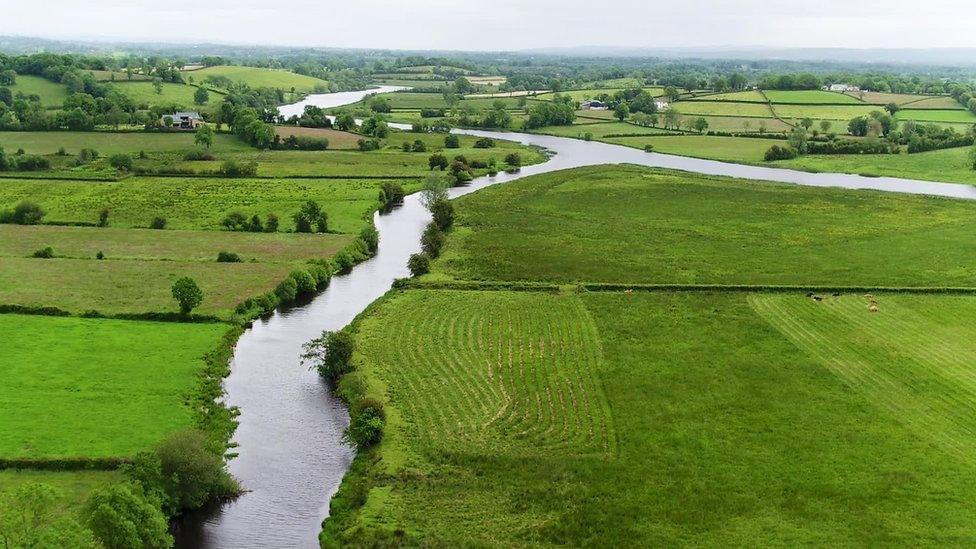
The RNLI has warned about the dangers of swimming in rivers and lakes
Mr Rahill, who is the RNLI's regional water safety lead, said that with the recent spell of hot weather there is the "potential for more incidents in terms of people getting into difficulty".
"If possible, swimming at a lifeguarded beach will certainly keep the number of incidents down," he added.
"Swim at a lifeguarded area, that's probably the most important thing to think of.
"If you are not familiar with the area, the lifeguards will know it, so they will be able to tell you where's safe and where's not safe - and swim between the flags."
He also highlighted the 'float to live' message if people did fall in the water.
Ross MacLeod, RNLI : "Rest and relax in the water"
The RNLI's appeal came as the UN prepares to host its first World Drowning Prevention Day on Sunday (25 July).
Irish Water Safety has said the majority of water tragedies occur in inland waterways and has emphasised the potential dangers of swimming in rivers and lakes.
Meanwhile, Gerard O'Flynn, operations manager with the Irish Coastguard, told Irish broadcaster RTÉ it had responded to about 1,690 incidents this year to date, compared to 1,340 at the same time last year.
He said that "the excellent weather combined with restrictions on other recreational activities" has led to more people in the water.
He urged people not to swim alone and to avoid using inflatable toys in the open water.
Mr O'Flynn also appealed to jet ski users to be sensitive to other swimmers.
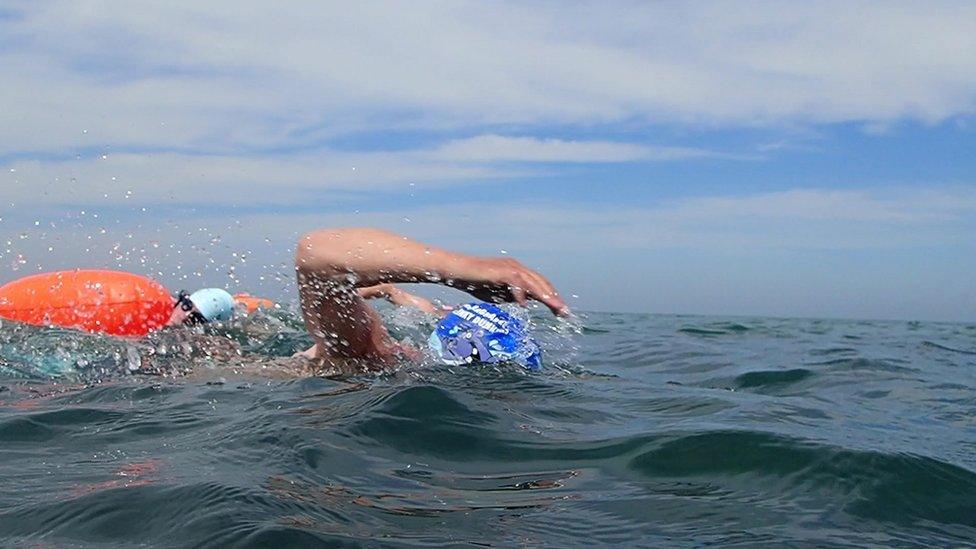
Swimmers have been asked to stick to a "lifeguarded beach"
He said the increased popularity of open water swimming has seen many people swimming longer distances and he called on people to make sure they are visible in the sea by wearing a cap and a tow float.
Northern Ireland Water has said "that there is no time for complacency around water".
It has urged "the community, especially children and young people, to take care around all bodies of water".
The ESB in the Republic of Ireland has also reminded people of the dangers of swimming in reservoirs.
It said: "These areas are not appropriate for swimming because of the risk of deep and fast-flowing waters, changing water levels and uneven ground."
Recent deaths
On Friday, a man in his 60s died after swimming off Dollymount Strand in north Dublin - the sixth death to come from people entering water in the island of Ireland in the past week.
The five other people died after going into lakes.
A 15-year-old boy who was rescued from a lake in the Republic of Ireland on Tuesday afternoon died in hospital on Thursday.
The boy was swimming in Lough Sheelin, at a meeting point of counties Westmeath, Meath and Cavan.

Jay Moffett, 13, was taken to hospital after entering water in the Canal Court area of Scarva, but later died
Earlier in the week, Jay Moffett, 13, died in hospital after going into water in the Canal Court area of Scarva, County Down on Monday afternoon.
Three adults also died in three separate incidents in the past week in County Fermanagh, on the Longford-Cavan border, and in County Leitrim.
Related topics
- Published23 July 2021
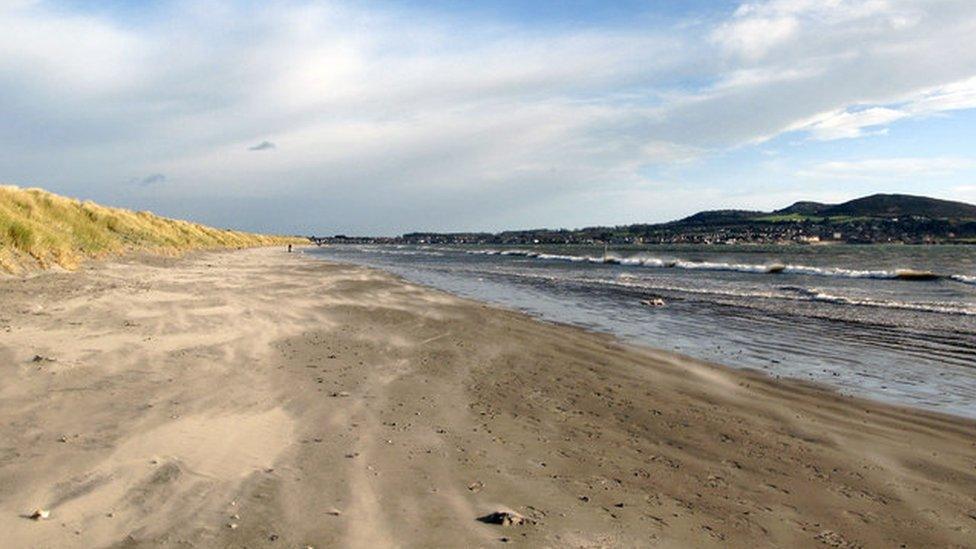
- Published23 July 2021
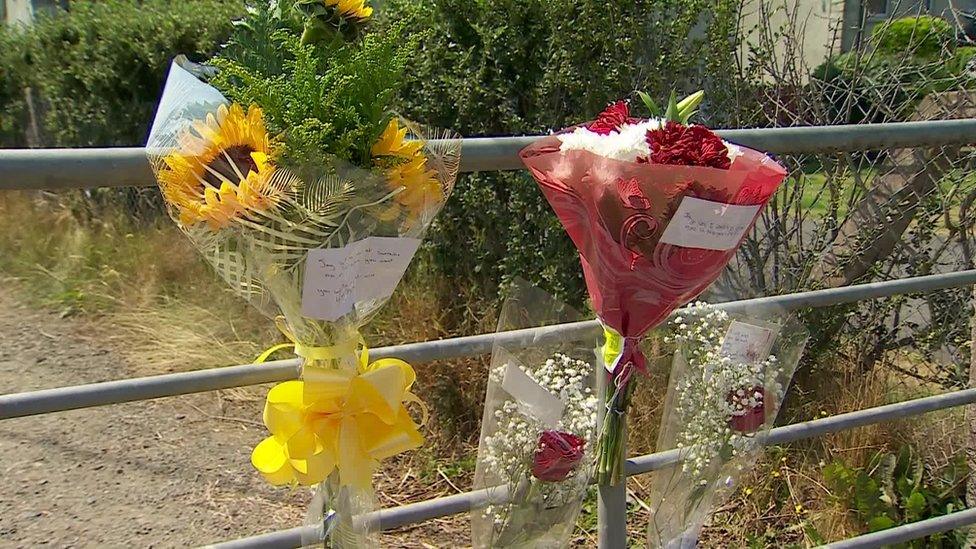
- Published21 July 2021
